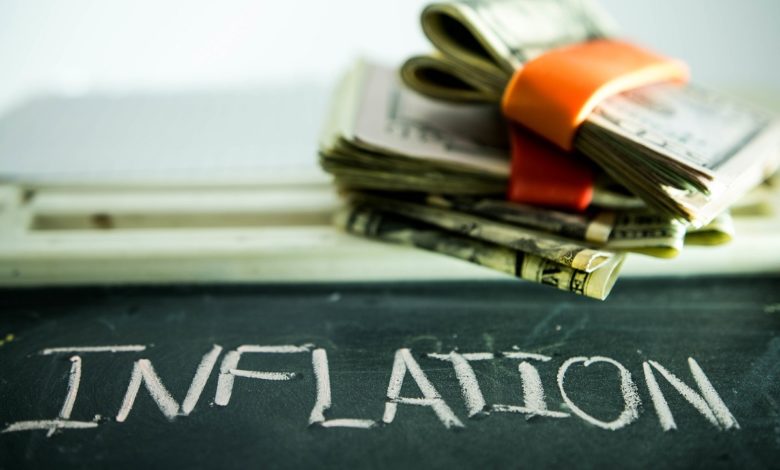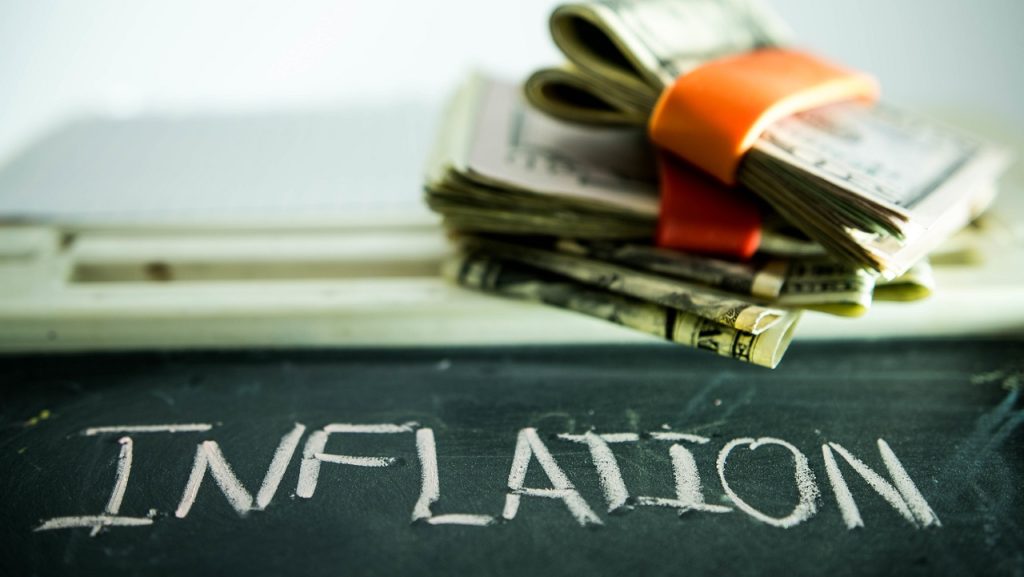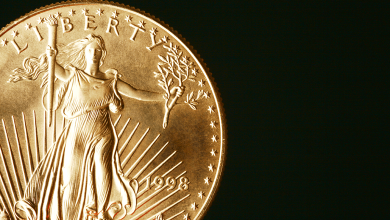Reclaiming the Definition of Inflation

People are confused about the definition of inflation. And because they don’t really know what inflation is, they can’t grasp what’s causing it.
Or how to fix it.
That’s why it’s imperative that we reclaim the meaning of inflation.
Inflation once had a very precise economic definition. But today, most people think inflation is just “rising prices.” Under the technical definition, rising prices are a symptom of inflation, not inflation itself.
When you redefine a symptom of something as the thing itself, it causes problems. For instance, imagine if we defined pneumonia as “a cough.” It would create chaos.
As Ludwig von Mises said, we can’t fight a policy that we can’t name. For that reason, Joshua Mawhorter argues that “it is high time we clarified and implemented the true definition of inflation.”
The following was originally published by the Mises Wire. The opinions expressed are the author’s and don’t necessarily reflect those of Peter Schiff or SchiffGold.
Words matter and definitions often become imprecise and “slippery.” There is a natural evolution of language wherein words gradually change over time, but often a key meaning gets lost and there no longer remains a single word to describe a concept. This has been the case with the common word “inflation.”
Over the last few years, I have kept a list of quotes about the accurate definition of inflation (and I am always looking for more quotes). What inspired this list was the recognition that what most people mean and understand by the word “inflation” is price inflation—increasing consumer prices. But this is not inflation; it is a consequence of inflation. In fact, a former coworker and friend asked me during the time of massive covid spending by the government, “Where is the inflation?”—to which I responded, “It already happened.” We need to return to the true definition of inflation. Otherwise, the responsibility of government and the central bank is obscured.
While there has been some debate within the Austrian school, even distinguishing between Ludwig von Mises’s and Murray Rothbard’s positions, inflation is, generally speaking, the artificial increase of money and credit (i.e., “printing money”). This act can be perpetrated by the central bank or banks operating on fractional reserves (usually with legal permission granted by the government before the central bank). Mises wrote of the negative impact of this definition change in his essay “Inflation and Price Control”:
The term inflation is used with a new connotation. What people today call inflation is not inflation, i.e., the increase in the quantity of money and money substitutes, but the general rise in commodity prices and wage rates which is the inevitable consequence of inflation. This semantic innovation is by no means harmless. (emphasis added)
Mises again referred to the consequences of such a definition in Human Action:
The semantic revolution which is one of the characteristic features of our day has also changed the traditional connotation of the terms inflation and deflation. What many people today call inflation or deflation is no longer the great increase or decrease in the supply of money, but its inexorable consequences, the general tendency toward a rise or a fall in commodity prices and wage rates. This innovation is by no means harmless. It plays an important role in fomenting the popular tendencies toward inflationism. (emphasis added)
Mises continued:
There is no longer any term available to signify what inflation used to signify. It is impossible to fight a policy which you cannot name. Statesmen and writers no longer have the opportunity of resorting to a terminology accepted and understood by the public when they want to question the expediency of issuing huge amounts of additional money. They must enter into a detailed analysis and description of this policy with full particulars and minute accounts whenever they want to refer to it, and they must repeat this bothersome procedure in every sentence in which they deal with the subject. As this policy has no name, it becomes self-understood and a matter of fact. It goes on luxuriantly. (emphasis added)
Likewise, Henry Hazlitt agreed with Mises and wrote a short essay that is not as well-known as it ought to be—“Inflation in One Page.” In this masterful summary, Hazlitt explains:
Inflation is an increase in the quantity of money and credit. Its chief consequence is soaring prices. Therefore inflation—if we misuse the term to mean the rising prices themselves—is caused solely by printing more money. For this the government’s monetary policies are entirely responsible. (emphasis added)
Rothbard’s definition of inflation differed slightly from Mises’s and was arguably a bit more precise but in the same spirit. In a recent article in the Quarterly Journal of Austrian Economics, “What Is Inflation? Clarifying and Justifying Rothbard’s Definition,” Kristoffer Hansen and Jonathan Newman clarify and agree with Rothbard’s definition of inflation, noting that Mises defined inflation as the increase in the money supply not offset by an increase in the demand for money, but Rothbard defined it as issuing “pseudo warehouse receipts” or issuing money in excess of the stock of specie (e.g., gold). Rothbard described inflation as follows:
The process of issuing pseudo warehouse receipts or, more exactly, the process of issuing money beyond any increase in the stock of specie, may be called inflation [italics original]. . . . The profit is practically costless, because, while all other people must either sell goods and services and buy or mine gold, the government or the commercial banks are literally creating money out of thin air. They do not have to buy it. Any profit from the use of this magical money is clear gain to the issuers. (emphasis added)
In The Progressive Era, Rothbard explained further:
The terms “inflation” and “inflationary” are used throughout this article according to their original definition—an expansion of the money supply—rather than in the current popular sense of a rise in price. The former meaning is precise and illuminating; the latter is confusing because prices are complex phenomena with various causes, operating from the sides of both demand and supply. It only muddles the issue to call every supply-side price rise (say, due to a coffee blight or an OPEC cartel) “inflationary.” (emphasis added)
While Mises and Rothbard differed on whether inflation should include or exclude new gold inflows, they both agreed that inflation is not an increase in prices but rather an increase in the supply of money and credit. They also both agreed that the consequences of inflation are (often) asymmetrically rising prices and business cycles.
If the definition was so simple and uncontested, why did the meaning of inflation change?
The answer can be found in the ideological and policy dispute between the British currency school and the British banking school (and their American counterparts). The currency school, which favored hard money to a greater degree, triumphed at first and had the opportunity to implement their policy prescriptions with the Bank of England. At that time, their definition of inflation was accepted. As Dr. Joseph Salerno explains in his book Money, Sound and Unsound, “The term ‘inflation’ was now used strictly to denote an increase in the supply of money that consisted in the creation of currency and bank deposits unbacked by gold.”
Unfortunately, unlike their American counterparts, the proponents of the British currency school, despite their accurate definition of inflation, failed to consider demand deposits as part of the money supply. For that reason, their policies as adopted in Great Britain failed to prevent both price inflation and the business cycle, and the currency school fell into disrepute. Inflation would now be subtly redefined as “a supply of circulating media in excess of trade needs.”
Over time, the definition would be further distorted. For example, even though it sounds technically correct, Milton Friedman’s definition contains several mistaken presuppositions: “[Inflation] is always and everywhere a monetary phenomenon. It’s always and everywhere a result of too much money, of a more rapid increase in the quantity of money than in output.”
Friedman is correct that inflation is always a monetary phenomenon; however, monetarists have different definitions of “money” and “money supply,” and monetarists view money as a policy instrument to be adjusted through inflation. Finally, the Keynesian revolution from 1936 forward would continue to change the definition of inflation to mean a general increase in the so-called price level. Salerno writes:
Before World War II, when the terms “inflation” and “deflation” were used in academic discourse or everyday speech, they generally meant an increase or a decrease in the stock of money, respectively. A general rise in prices was viewed as one of several consequences of inflation of the money supply; likewise, a decline in overall prices was viewed as one consequence of deflation of the money supply. Under the influence of the Keynesian Revolution of the mid-1930s, however, the meanings of these terms began to change radically. By the 1950s, the definition of inflation as a general rise in prices and of deflation as a general fall in prices became firmly entrenched in academic writings and popular speech. (emphasis added)
As Mises said, we cannot fight a policy that we cannot name. It is high time we clarified and implemented the true definition of inflation. If we can convince people that inflation means “printing money” artificially and then explain the consequences, this will help them understand what government has done to our money.
Call 1-888-GOLD-160 and speak with a Precious Metals Specialist today!
Buka akaun dagangan patuh syariah anda di Weltrade.
Source link







